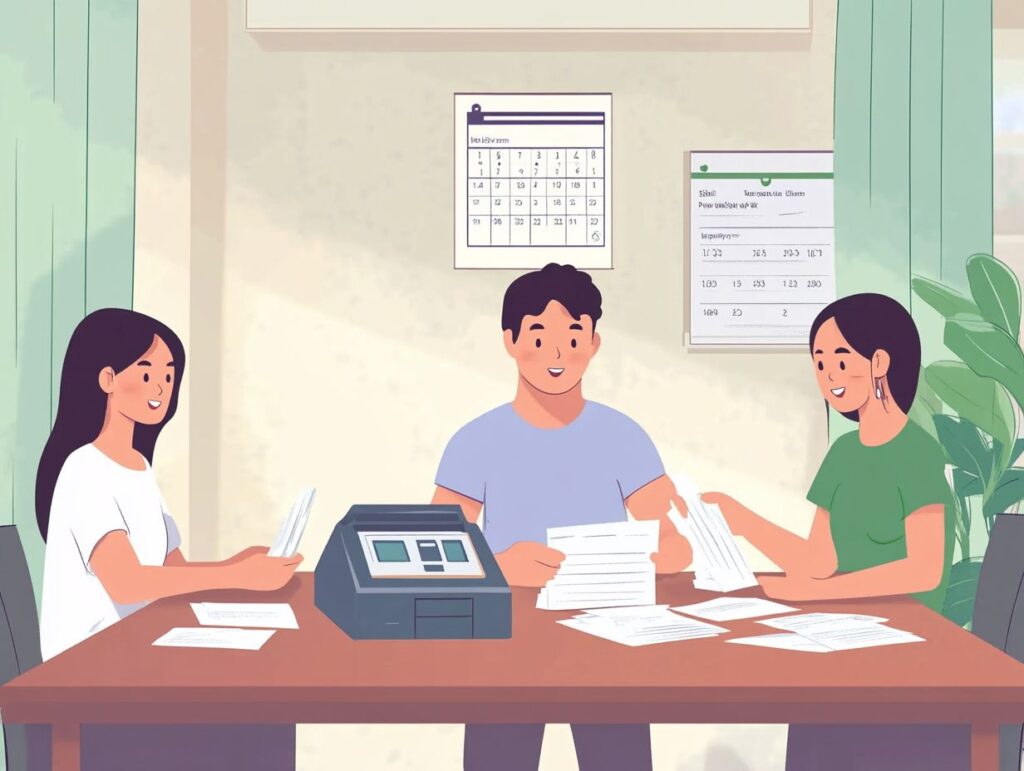In an age where identity theft and data breaches are common, ensuring the security of your personal information is critical.
Residential shredding services offer a practical solution for disposing of sensitive documents safely, but knowing when and how to use them can be tricky.
This guide explores the importance of shredding for personal security, factors to consider before using a shredding service, best practices for document preparation, and alternatives to traditional shredding.
Whether you’re overwhelmed with old paperwork or looking to safeguard your private data, this guide has you covered.
The Importance of Residential Shredding Services

Residential shredding services are essential for maintaining data security and safeguarding personal information, particularly in light of the increasing concerns related to identity theft and data breaches. These services facilitate the secure disposal of sensitive documents, providing residential customers with peace of mind.
By employing professional shredding solutions, individuals can effectively manage their confidential materials while ensuring compliance with relevant shredding regulations. Moreover, the significance of this process is heightened by the growing awareness of compliance and safety standards related to document destruction in today’s information-driven society.
Why Shredding is Necessary for Personal Security
Shredding is essential for personal security, as it safeguards sensitive documents from unauthorised access and protects individuals from identity theft and data breaches.
In an increasingly digital world, where personal information is frequently stored and shared, the importance of diligent document management cannot be overstated. Effectively managing physical documents, which may include bank statements and medical records, is a crucial step in maintaining privacy. By utilising secure shredding services, individuals can significantly mitigate the risk of unauthorised access to their data.
These services not only ensure that documents are irretrievably destroyed but also reinforce a commitment to safeguarding personal information against potential threats posed by hackers and fraudsters. The peace of mind derived from knowing that sensitive materials have been properly disposed of emphasises the necessity of prioritising personal security in everyday life.
Factors to Consider Before Using Residential Shredding Services

Before selecting residential shredding services, it is essential to consider several key factors, including the frequency of document disposal, associated shredding costs, and the convenience provided by various service providers.
A thorough understanding of these elements will enable individuals to choose the most suitable shredding solutions tailored to their residential needs.
Amount of Sensitive Documents
The volume of sensitive documents requiring disposal directly impacts the frequency of shredding services necessary for effective residential management.
Each household’s circumstances vary; some may accumulate significant amounts of personal information, including financial statements, medical records, or tax documents, while others may have only a minimal collection. This variation necessitates customised shredding schedules tailored to individual needs.
For households with a larger volume of paperwork, exploring bulk shredding options may be advantageous. These services can be adapted to align with residential lifestyles, facilitating periodic shredding sessions rather than sporadic ones.
Establishing a consistent plan is essential for maintaining security while effectively managing clutter. Such tailored approaches ensure that each household can safeguard sensitive information without the challenges associated with irregular disposal.
Frequency of Document Disposal
Establishing an appropriate frequency for document disposal is essential for maintaining data security and ensuring the prompt destruction of sensitive information.
For many individuals, the decision often lies between scheduled services and one-off shredding. Scheduled shredding provides a consistent and convenient solution, wherein professionals routinely collect documents, thereby minimising the risk of oversight.
Conversely, one-off shredding may be more suitable for those who do not generate a substantial volume of sensitive waste but require a comprehensive clear-out on occasion. The convenience of accessible shredding options plays a crucial role in this decision; an easily implementable shredding schedule can significantly mitigate the risk associated with storing outdated materials.
In emergency shredding situations—such as sudden job changes or unexpected data breaches—the necessity for immediate disposal can prompt individuals to make swift decisions. This underscores the importance of having reliable options readily available for domestic shredding.
Cost and Convenience
When evaluating residential shredding services, the balance between cost and convenience is a critical consideration that influences the overall affordability and accessibility of these essential services.
It is imperative to compare shredding costs among various providers while also assessing their ability to meet individual needs. Each service may present different pricing structures, package options, and levels of convenience; therefore, potential customers should meticulously examine what each provider offers.
Additionally, it is advisable to seek opportunities for service customisation, whether through scheduled pick-up or on-site shredding. By choosing a provider that offers flexibility in service offerings, one can enhance the value proposition, ensuring not only satisfaction but also a streamlined experience tailored to specific personal or household privacy requirements.
Best Practices for Using Residential Shredding Services

To fully leverage the advantages of residential shredding services, individuals should adhere to best practices. This includes meticulous document sorting and selecting a reputable shredding company that uses advanced shredding technology.
Proper Document Sorting and Preparation
Proper document sorting and preparation are critical components of the shredding process, ensuring that sensitive documents are accurately identified and disposed of efficiently.
By methodically organising paperwork, individuals can readily identify items containing confidential information, such as financial records, medical documents, and legal papers. It is also advantageous to categorise documents based on their type and significance, as this will facilitate a more streamlined sorting and disposal process. Once these sensitive materials are identified, preparation for shredding entails securely bundling them to prevent unauthorised access.
Additionally, incorporating eco-friendly disposal practices, such as recycling non-sensitive paper waste in conjunction with shredding, not only promotes sustainability but also underscores a responsible approach to data security.
Choosing a Reputable Shredding Company
Selecting a reputable shredding company is essential for ensuring secure and reliable document disposal. Individuals should evaluate service providers based on established industry standards and customer reviews.
When assessing potential shredding partners, it is crucial to verify their certifications, which confirm compliance with recognised security protocols. Companies that adhere to industry standards not only demonstrate a commitment to protecting sensitive information but also reflect their investment in quality practices.
Seeking customer feedback can offer valuable insights into the experiences of others, underscoring the reliability and responsiveness of the service. Ultimately, choosing a provider that prioritises both security measures and the quality of service provides assurance that documents are managed with the highest level of care.
Alternatives to Residential Shredding Services

For individuals who may choose not to utilise professional services, there are several alternatives to residential shredding services that can effectively manage document destruction. These alternatives include do-it-yourself shredding methods and electronic document storage solutions.
DIY Shredding Methods
DIY shredding methods offer a cost-effective solution for individuals addressing their household shredding requirements, allowing them to employ various types of shredders to securely destroy documents.
With numerous options available in the market, it is essential to understand the distinctions between strip-cut, cross-cut, and micro-cut shredders for effective utilisation. While strip-cut models are budget-friendly and sufficient for general purposes, cross-cut shredders provide enhanced security by cutting paper into smaller pieces, making it significantly more challenging for unauthorised individuals to reconstruct documents. Micro-cut shredders take security a step further, offering superior protection for sensitive information, though they typically come at a higher price point.
When selecting the appropriate shredder, it is important to consider factors such as the volume of shredding, frequency of use, and the types of documents being disposed of. Moreover, adopting effective shredding practices, such as periodically cleaning the shredder and avoiding overloading, can help ensure the longevity of the device while maximising document security.
Electronic Document Storage and Disposal
Transitioning to electronic document storage and disposal represents an effective strategy to enhance data protection and maintain privacy, especially in an increasingly digital landscape.
By implementing these systems, organisations can mitigate risks associated with the handling of physical documents, such as theft and unauthorised access, while ensuring compliance with stringent data regulations. Electronic document storage offers a structured, easily searchable database that not only conserves physical space but also facilitates seamless integration with shredding services, ensuring that any sensitive information is securely destroyed.
In this context, it is imperative for organisations to adopt best practices, including the implementation of robust access controls and encryption, to safeguard the integrity of their data. Regular audits and employee training on compliance further strengthen defences against potential data breaches, underscoring the necessity of a comprehensive approach to both storage and disposal.
Frequently Asked Questions
How often should you use residential shredding services?
The frequency of using residential shredding services depends on how much paper waste you generate on a regular basis. As a general recommendation, it is suggested to use shredding services at least once every 3-6 months.
Can you use residential shredding services for larger quantities of documents?
Yes, residential shredding services are available for both small and large quantities of documents. You can contact the service provider to arrange for a one-time or recurring shredding service, depending on your needs.
What types of documents should you shred?
Any documents that contain personal or sensitive information should be shredded. This includes old bank statements, credit card statements, tax forms, medical records, and any other documents that may have personal information such as your name, address, social security number, or financial information.
Is it necessary to remove staples and paper clips before shredding?
No, most residential shredding services have equipment that can handle staples, paper clips, and other small metal objects. However, it is recommended to remove large metal items like binder clips to prevent any damage to the shredder.
How is the shredded paper disposed of?
The shredded paper is typically sent to a recycling facility where it is turned into new paper products. This helps reduce waste and promotes environmental sustainability.
Can you watch the shredding process?
Yes, many residential shredding services offer the option to witness the shredding process. This can provide added peace of mind and assurance that your documents have been properly destroyed.

